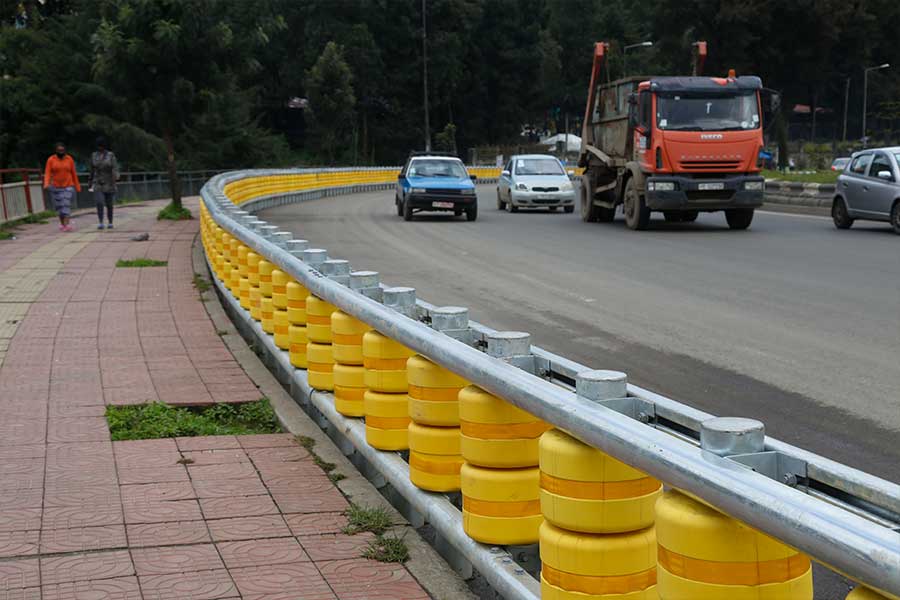
Fortune News | Aug 16,2020
Sep 7 , 2025
By BEZAWIT HULUAGER ( FORTUNE STAFF WRITER )
In Addis Ketema District’s Merkato, Shemiz Tera had long thrived as a garment trading hub, with nearly 500 households relying on its crowded stalls for income. Two weeks ago, the market’s rhythm halted abruptly when authorities fenced off a 4,000Sqm plot under the cover of night, scattering traders and shutting down decades of commerce.
For decades, Shemiz Tera in the Addis Ketema District of Atena tera has been a thriving hub for the garment trade, which has become a vital source of income for nearly 500 households.
The busy market was a fixture in the lives of traders and residents alike, until two weeks ago, when everything changed overnight. Authorities cleared the entire area under the cover of darkness, fencing off the land and scattering hundreds of small business owners.
The impact of the sudden eviction is immediate and painful. Among the displaced is a woman, nearly 65 years old, who now sits by the new fence with piles of unsold clothes around her. After losing the advance she paid for her stall, she waited every day for a repayment that has yet to come. Her story is one among many. Some traders who had organised themselves into share companies have filed formal complaints.
However, District authorities responded with a notice of vacancy, and as the situation escalated, the case was referred to the city’s Cabinet for further review. Despite these efforts, the authorities pressed ahead with the clearance.
The Shemiz Tera clearance is part of a broader wave of redevelopment across Addis Ababa, where city authorities are pushing ahead with large-scale projects. Over the past year, corridor developments costing 33 billion Br have transformed the urban landscape, displacing tens of thousands of households in neighbourhoods such as Qera, Piassa, Casanchis and Arada. While officials say the projects are part of the city’s modernisation plan, many relocated residents have ended up in condominium blocks on the outskirts of the city, where access to basic services like water, electricity, and roads is limited.
Traders say they have deep roots in Shemiz Tera, dating back to 1968, when they received permission from city authorities to operate in the area. Over the years, they organised themselves into two share companies, Tiret Commercial Building S.C. and Bekur Commercial Building S.C., representing more than 400 shareholders. To develop the area themselves, they raised nearly 150 million Br to build a mixed-use G+9 building.
According to Tiret S.C.’s General Manager, Getu Meruf, their development application began in 2017, but financial constraints stalled progress at first. After years of fundraising, they eventually secured 150 million Br, about a quarter of what was needed, only to see their plans halted without warning.
“How could they demolish the area in the middle of the night?” said Getu, looking baffled.
Traders say they were given three days’ notice before the demolition, a period they argue was too short to move operations that supported dozens of workers in each shop. Now, 160 of the members have filed a court case to challenge the city’s action, while also appealing to local officials for help.
“We should have been given priority in the development,” Getu insisted.
The situation has upended the lives of traders. Tigist Firew, who used to own a shop in Shemiz Tera, now works as a waitress in a coffee shop across from the fenced land.
“My life has turned upside down,” she said.
City officials maintain that the proper procedures were followed. Fikradis Abayneh, who heads the Addis Ketema District Land Development Bureau, told Fortune that residents were first notified at a meeting on June 9, 2025, and that multiple notices followed. According to her, the city Cabinet approved the land transfer to a developer back in March.
“We've been issuing guarantee papers to individuals until they can organise as associations," Fikradis told Fortune. "We only recognise those.”
One of the main disputes is the legal status of the traders. The administration does not recognise the share companies formed by the traders. Fikradis claimed that many initial tenants had illegally rented out their tiny stalls, which are about 1.5Sqm to two square metres, and which technically belonged to the Federal Housing Corporation.
“When we called a meeting, fewer than 20 of the original tenants attended," she said. "We're trying to filter out the illegitimate ones.”
Among those caught in the middle is Dagolo Gemanch, who travelled from Arba Minch to Addis Abeba in hopes of securing one of the guarantee papers. He had long rented a stall at Shemiz Tera, paying 3,000 Br a month, with a third of that amount going toward share contributions.
The disputed site covers 4,000Sqm plot and has now been handed to a private company, Zangebo Textile Plc, for the development of a mall and apartments, despite Tiret SC being an early applicant for the plot. A 60-year lease was signed for 152 million Br, payable over 20 years, with an average price of 39,000 Br a square meter. A prepayment of 30 million Br has already been made. Officials say the new project will offer displaced traders 25Sqm spaces, an increase over the tiny stalls they once occupied.
The sudden eviction has prompted legal questions.
According to Habtamu Kassa, a land law lecturer at Dilla University, the law requires at least a year’s notice for displacement except in cases of “urgent public need.” The law does not clearly define what qualifies as urgent, but Habtamu believes this typically applies to infrastructure or humanitarian projects. He argued that the traders might still have grounds to claim financial losses, but said the government’s position could weaken their case.
Habtamu also pointed to another challenge for the traders. Tenants who sublet stalls without notifying the city administration risk losing the right to compensation, as subletting is not considered legally valid.
“While tenants are generally entitled to compensation, subletting without notifying the government jeopardises that right,” he said.
For those who once called Shemiz Tera home, the promise of larger spaces and new opportunities feels far away. The dispute now moves to the courts, where traders hope for a ruling that will restore a measure of stability to their disrupted lives. For now, the fence stands as a stark reminder of what has been lost, and of the human cost that often shadows urban renewal.
PUBLISHED ON
Sep 07,2025 [ VOL
26 , NO
1323]

Fortune News | Aug 16,2020
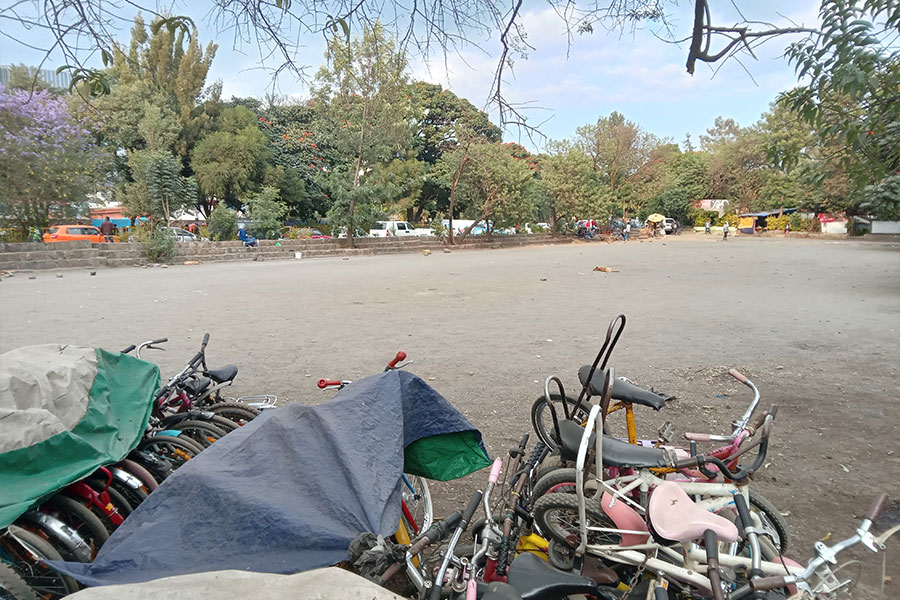
Radar | Dec 12,2023
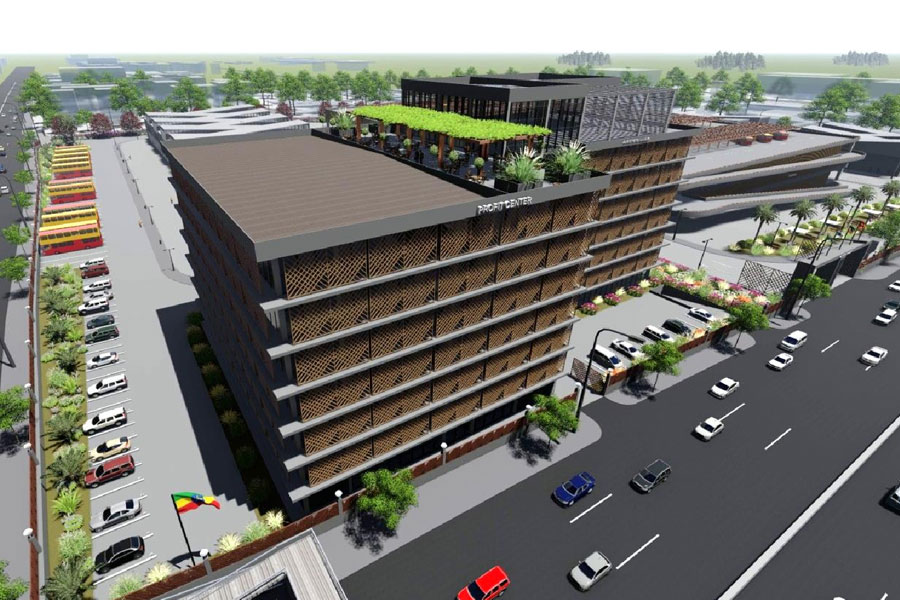
Fortune News | Feb 02,2019
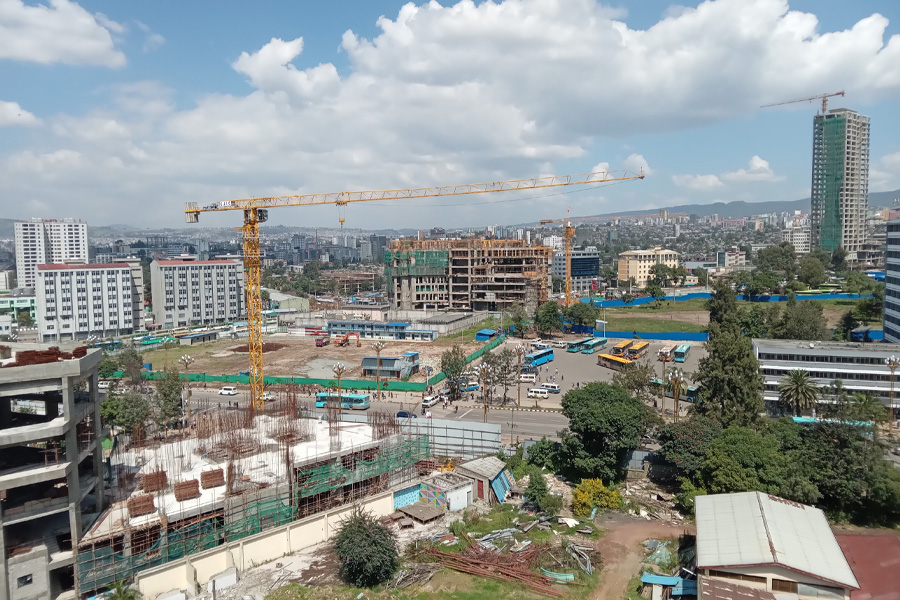
In-Picture | Nov 16,2024

Radar | Jan 22,2022

Fortune News | Nov 04,2023
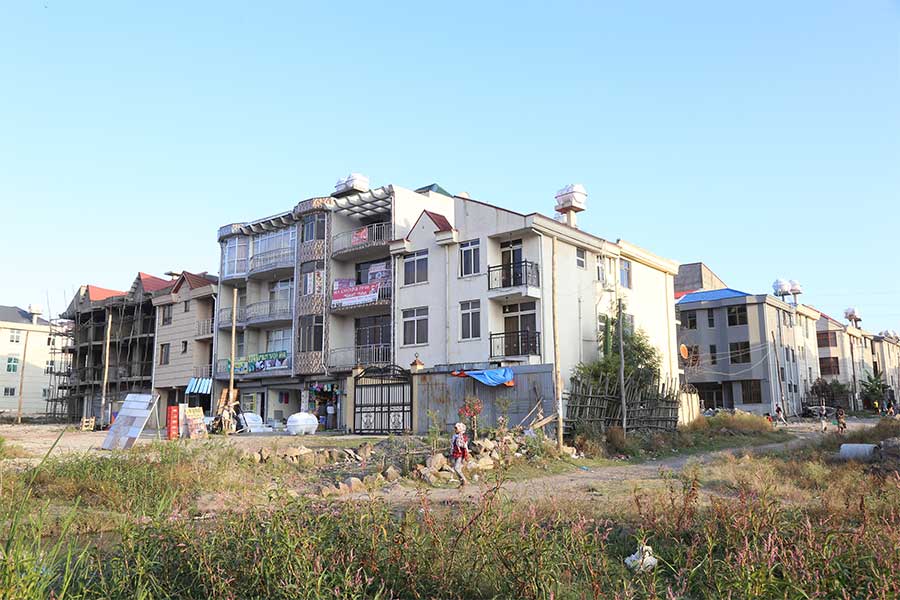
Fortune News | Dec 14,2019
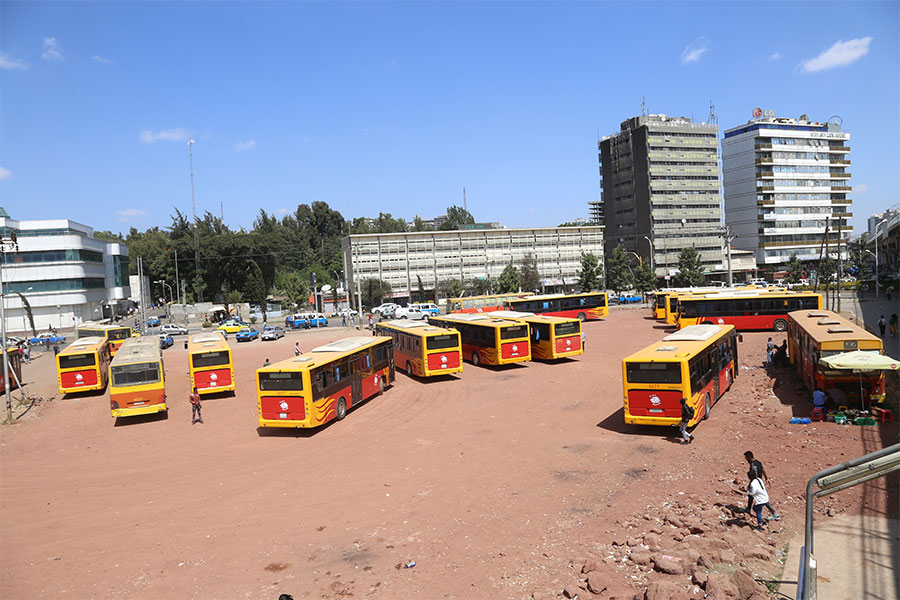
Fortune News | Dec 25,2021

Radar | Mar 30,2019

Fortune News | Oct 03,2020

Dec 22 , 2024 . By TIZITA SHEWAFERAW
Charged with transforming colossal state-owned enterprises into modern and competitiv...

Aug 18 , 2024 . By AKSAH ITALO
Although predictable Yonas Zerihun's job in the ride-hailing service is not immune to...

Jul 28 , 2024 . By TIZITA SHEWAFERAW
Unhabitual, perhaps too many, Samuel Gebreyohannes, 38, used to occasionally enjoy a couple of beers at breakfast. However, he recently swit...

Jul 13 , 2024 . By AKSAH ITALO
Investors who rely on tractors, trucks, and field vehicles for commuting, transporting commodities, and f...

Oct 25 , 2025
The regulatory machinery is on overdrive. In only two years, no fewer than 35 new pro...

Oct 18 , 2025
The political establishment, notably the ruling party and its top brass, has become p...

Oct 11 , 2025
Ladislas Farago, a roving Associated Press (AP) correspondent, arrived in Ethiopia in...

Oct 4 , 2025
Eyob Tekalegn (PhD) had been in the Governor's chair for only weeks when, on Septembe...